In 2023, we saw resounding success from going all in on climate justice.
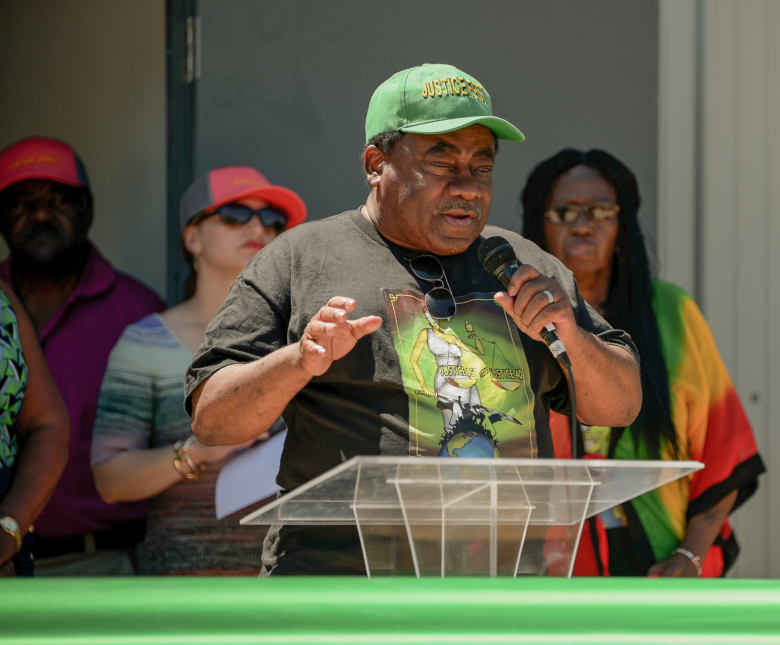 New Alpha CDC
New Alpha CDC
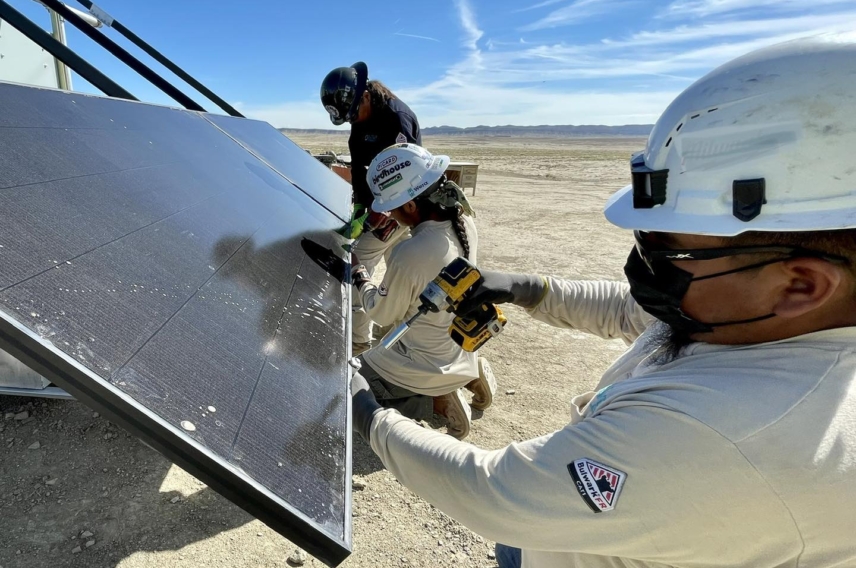 Native Renewables
Native Renewables
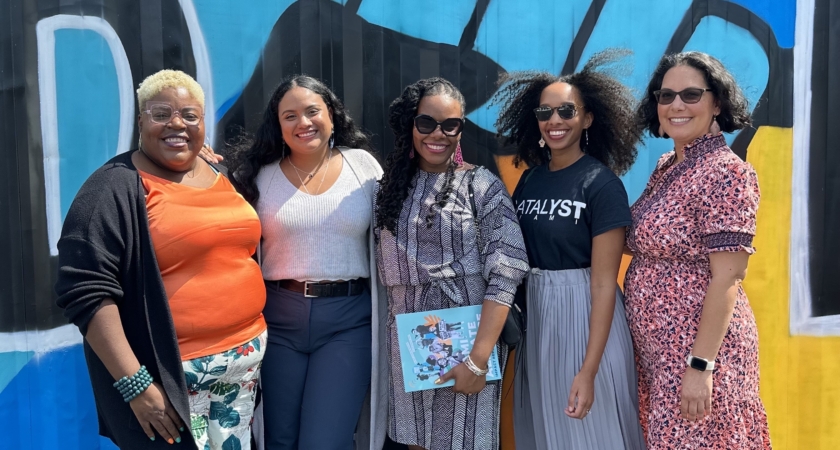 Gloria Walton and grantee partners in Miami
Gloria Walton and grantee partners in Miami
When philanthropy follows through on equity commitments, frontline communities can scale their innovations, benefiting people and the planet.
In 2023, We Championed Bold and New Climate Solutions
Solutions
benefited from grantee policy achievements, including clean energy, air, and water
(Source: Just Solutions Collective, 2024)
Funding
across The Solutions Project core grassroots grantmaking and the movement Ecosystems Funds we administer
Influence
estimated in press/online coverage for The Solutions Project and our Narrative Communications-supported grantees (Meltwater)

Doubling Down on Frontline Communities' Climate Solutions
In 2023, the world grappled with unprecedented climate challenges from devastating wildfires in Canada and Hawaii to floods in India, Libya, and California. Frontline communities, already burdened with existing inequities, are bearing the brunt of these impacts.
Yet, across the United States, we see that these communities are at the forefront of innovation, creating solutions to tackle the climate crisis. Take Northeast Houston, where communities of color have faced increased flooding and toxic pollution due to the city’s failing draining infrastructure harming residents’ homes and health.
Enter West Street Recovery, a Solutions Project grantee partner, who collaborated with other community-based partners to press the city into action. The result: Houston committed $20 million to update and maintain drainage systems that will protect more than 200,000 residents from flooding and toxic pollution.
This success story of relentless organizing underscores the power of those on the ground who are creating bold, practical, and effective climate solutions. It demonstrates our belief that grassroots community leaders have the clearest visions for ground-up transformation and are best positioned to drive change.
Despite frontline communities creating lasting impact, a mere 1.3% of climate philanthropy reaches Black, Indigenous, Latinx, Asian American, Pacific Islander, and other people of color-led grassroots organizations. The lack of financial resources contrasts with the incredible achievements of these communities – securing policy wins, practicing regenerative farming, pioneering clean tech for renewable energy and safe drinking water, orchestrating mutual aid networks, and more. Their solutions are tackling the root causes of the climate crisis, creating models for scaled impact and finding ways out of seemingly impossible situations.
Over the past three years, The Solutions Project directed over $42 million towards climate equity and justice: funding over 300 groups across 45 states in our core grantmaking and through the movement ecosystem funds we administer, with a notable 90% going towards people of color-led and 80% to women or nonbinary-led organizations. The results are undeniable – our grantees achieved 53 policy and campaign wins benefiting over 100 million people, provided direct services for one million individuals, and organized nearly 80,000 members as part of their long-term base building. Our support also helped grantees leverage over $70 million in new funding and fueled movement efforts to win $367.2 billion in public funding for climate justice solutions. 96% of our grantees surveyed by our external evaluator credited The Solutions Project’s partnership as important or very important (70%) for scaling their impact and climate solutions.
At a critical moment for climate we are seeing donors gravitating to one size fits all tech investments, or being overtaken by the doomsday narratives that tell us change is impossible. I instead offer hope and a different view: that people are at the heart of climate solutions, and that they can and will change the trajectory of the climate crisis. That’s why we’ve gone all in on climate justice.
Having grown up and spent most of my career organizing in frontline communities, I witnessed and experienced the severe under-resourcing in our movements, even as they demonstrated an unwavering commitment to achieving transformational impact. I came to The Solutions Project because it offers a vehicle to fundamentally reorient our economy, democracy, and society towards climate justice solutions borne from first-hand experience, ingenuity, and optimism.
The urgency for climate justice has never been more apparent. We are navigating multiple existential and humanitarian crises, domestically and globally, in a volatile U.S. election year. This moment requires us to be in deep solidarity across communities. Our network of grantee partners is ready to lead in climate solutions, focusing on resilience, democracy, and innovating new solutions.
This is not a moment to abandon justice; it’s a call to double down.
Join us in going all in on community led climate solutions!
Gloria Walton,
President + CEO

With increased support and resources, our grantee partners achieved profound and far-reaching impact in 2023.
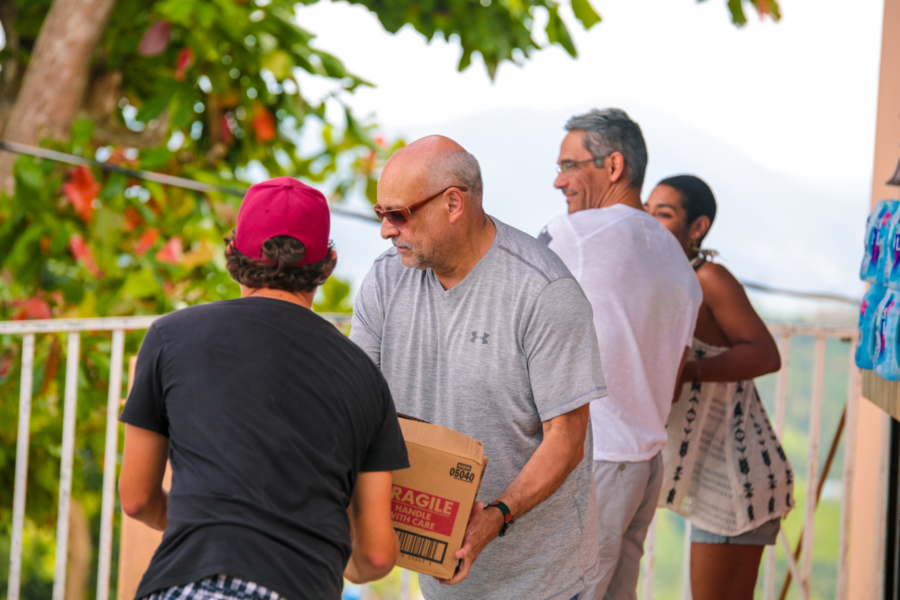
La Maraña
What sets our partners’ frontline solutions and strategies apart is that they address climate change and multiple other social issues simultaneously.
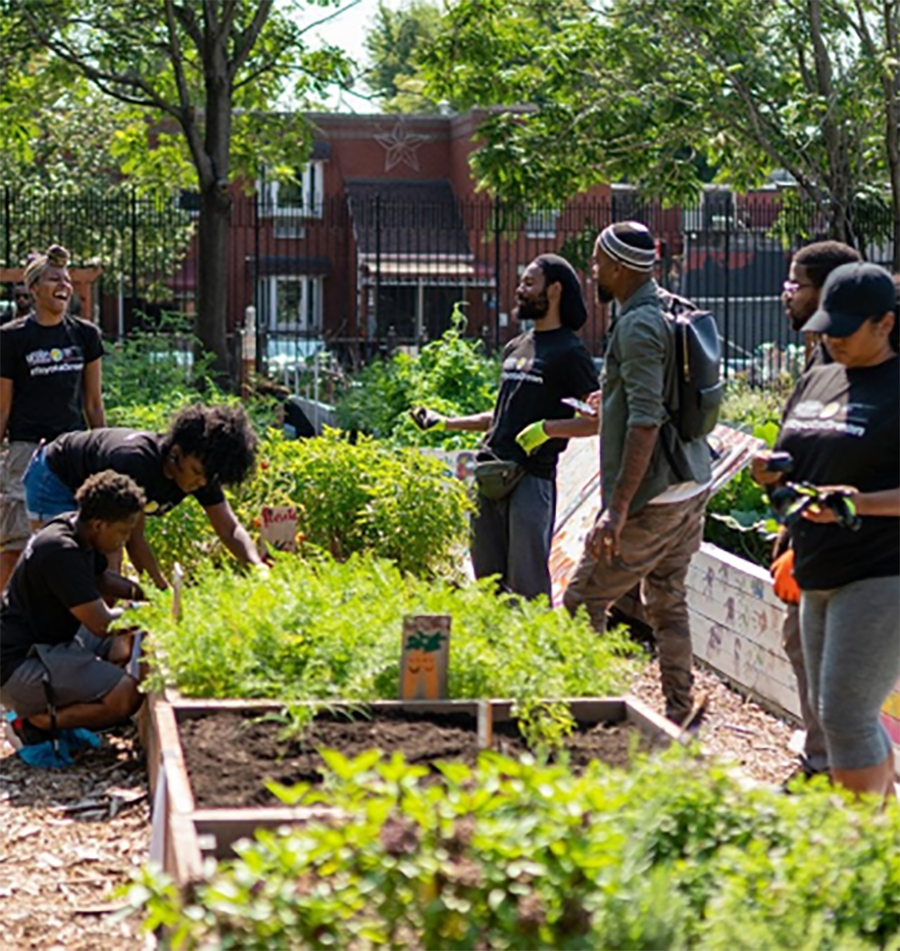
Good Life Gardens
For example, building affordable housing in net-zero buildings addresses climate and housing needs at the same time, making climate solutions an integral part of people’s day-to-day lives.
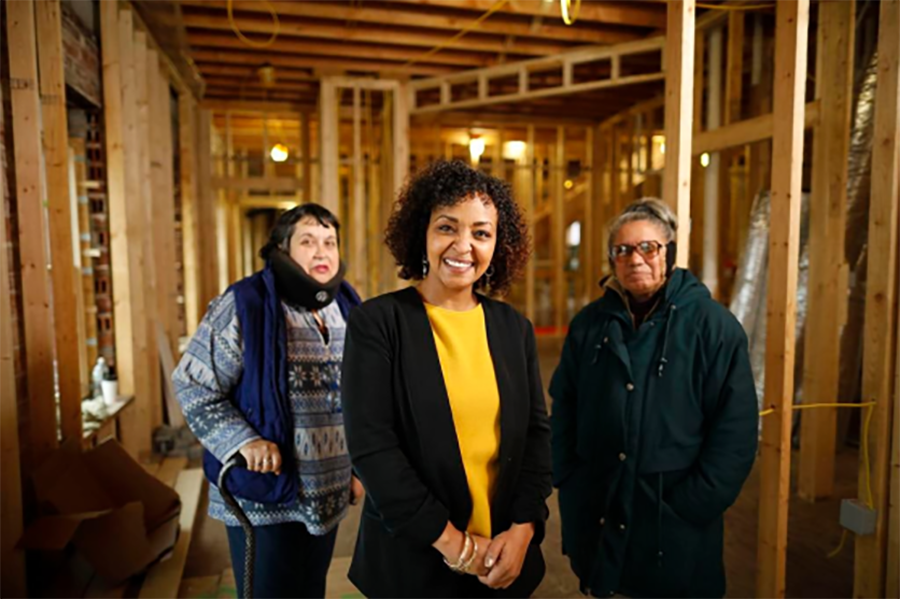
PUSH Buffalo
The community involvement at the core of our grantee partners’ work ensures a greater success rate for their local climate solutions.
In 2023, The Solutions Project-Supported Grantees Made the Following Possible:
Political victories for
and campaign wins on issues including gas and drilling bans, public funding for clean energy, and disaster relief or resilience
Less pollution for
achieved improved air quality and health as a result of reduced pollution
Indigenous control of
of sacred lands protected or returned to Indigenous stewardship
Clean energy for
gained access to affordable clean energy from major power plants going 100% renewable
The largest power generator in New York City (NYC) – Ravenswood Generating Station – represents 20% of the city’s generation capacity. For years, The Solutions Project’s grantee partner The NYC-Environmental Justice Alliance (NYC-EJA) has led efforts pushing for cleaner energy in NYC, including transitioning this power station. Thanks to their community mobilization, and powered by The Solutions Project’s support, it was announced in 2023 that Ravenswood will transition from fossil fuels to become the nation’s first major 100% clean energy-sourced power plant. This however is an active, ongoing emissions reduction campaign that still requires support.
(Photo credit: Renewable Ravenswood)
This grantee partner's victory delivers:
Improved Health
better air quality for >1.2 million people living within three miles of the plant
Energy Access
over two million homes will now have affordable clean energy for their electricity and improved grid reliability
Worker Benefits
local unions will retrain 100 utility workers for green jobs
Climate Impact
900,000 metric tons of CO2 emissions reduced per year, the equivalent of taking ~200,000 cars off roads
In 2023, Miami faced record-breaking heat. Thanks to the efforts of our grantee partners Catalyst Miami, Miami Climate Alliance, the CLEO Institute, and WeCount, Miami-Dade County was a focal point for developing heat solutions despite Florida’s challenging political landscape. In previous years, community organizing led to the formation of the county’s Extreme Heat Action Plan and the appointment of the nation’s first Chief Heat Officer.
(Photo credit: WeCount)
This grantee partner's achievements include:
Improved Preparedness and Response
The Extreme Heat Action Plan resulted in tangible benefits: 1,700 efficient AC units installed, 16,000 trees planted on public lands, and 10,000 trees distributed to residents. Miami Climate Alliance distributed cooling kits during high-heat days and trained community members to best prepare for excessive heat. With continued grantee partner advocacy, the city updated their extreme heat response protocols, as well as other actions.
Increased Standards
Catalyst Miami’s research influenced the Miami National Weather Service to lower the threshold for heat warnings and advisories, increasing equity standards in weather alerts.
Building Community Power for Systemic Change
WeCount’s QueCalor! campaign, advocating for countywide heat standards garnered national media attention, marking a significant step towards policy change. If passed, it would have been the first in the nation.
*On the day of the vote, the county offices were packed with workers showing support. However, powerful groups in Florida passed a state law that banned cities from passing heat protections. The story of the campaign was captured in news outlets across the country.
Communities of color in Northeast Houston have faced exacerbated flooding and toxic pollution due to the climate crisis and the city’s failed upkeep of open drain ditches. As a result, residents’ health and homes have been negatively affected. Through relentless organizing and in depth research, The Solutions Project partner West Street Recovery collaborated with other community-based organizations to get the city to take action. Thanks to their efforts, in June 2023, the city of Houston agreed to invest $20 million in updating and maintaining drain infrastructure.
(Photo credit: West Street Recovery)
The new Local Drainage Program improves long-term infrastructure and disaster preparedness by:
Protecting Homes
Reduced flooding risk for 200,000+ Northeast Houston residents
Preventing Toxic Pollution
Minimized residents’ exposure to industrial waste, including the state’s largest creosote (wood tar chemicals) deposit and a local landfill
Improving Health
Addressed the threat of mosquito-borne illnesses

Today, just 1.3% of U.S. climate philanthropy goes to grassroots Black, Indigenous, and People of Color (BIPOC) led groups with only 4% of climate philanthropy dedicated to equity.
The Solutions Project disrupts this status quo to exponentially increase the flow and flexibility of dollars going to the grassroots.
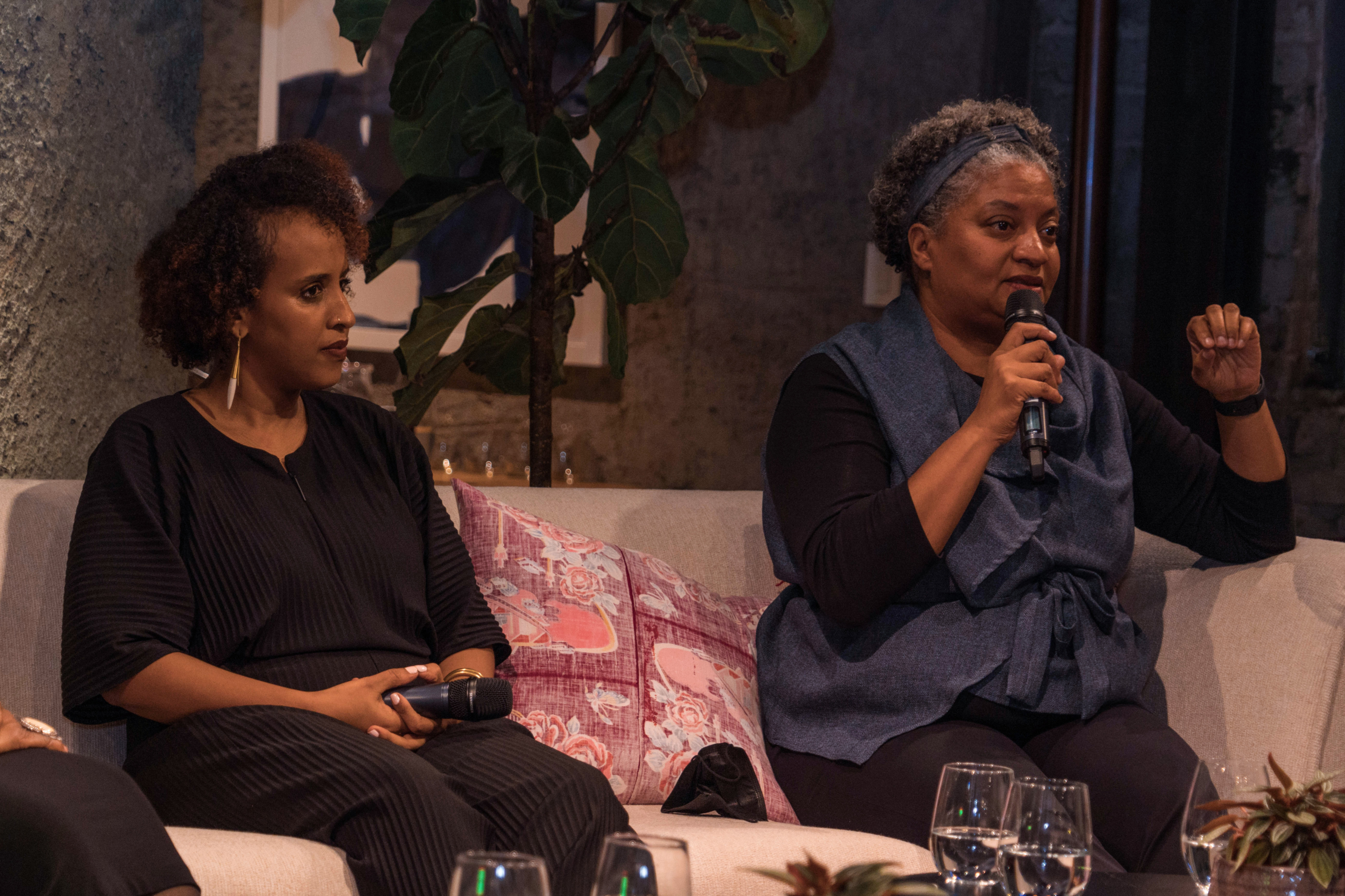 Urban Tilth
Urban Tilth
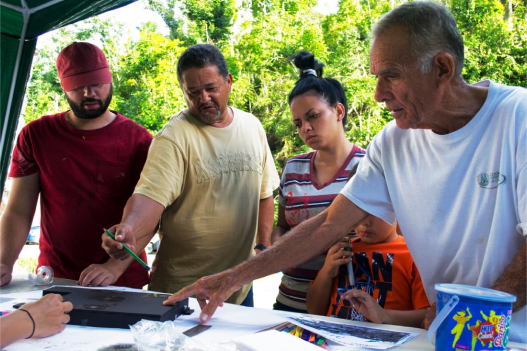 La Maraña
La Maraña
We understand that grassroots grantmaking, when done in solidarity with grassroots movements, is essential not only for equity but for sustainable solutions to the climate crisis.
Independent and Collaborative Funds Administered by The Solutions Project: Communicating Our Power, Justice40 Accelerator, and Fund For Frontline Power.
in additional grant funds to 119 groups
The Solutions Project is reshaping philanthropy by creating impactful and necessary pathways for large-scale funding to reach frontline communities of color. We provide multi-year and general operating grants to grassroots organizations and alliances innovating climate justice solutions. Our grantee partners’ strategies are wide ranging and include community organizing, direct program delivery, crisis and resilience work, policy advocacy, economic development, integrated voter engagement, arts and culture, and more. Many work in and organize multi-racial, immigrant, intergenerational, and worker coalitions.
One long-term grantee partner is Thunder Valley Community Development Corporation (CDC) in Oglala Lakota territory and the Pine Ridge Reservation, also known as South Dakota. The Solutions Project began supporting Thunder Valley CDC in 2019, and has grown our partnership to provide not only multiyear general operating support, but also disaster resilience, rapid response, community labor, and wellness grants. As an indicator of the strength of our relationship, Thunder Valley CDC awarded The Solutions Project their Partner of the Year award in 2023.
(Photo credit: Thunder Valley CDC)
In collaboration with Elevate and Partnership for Southern Equity, The Solutions Project administers grantmaking for the Justice40 Accelerator, an initiative to increase access and capacity to secure new government funding for frontline climate justice groups.
One 2023 example of a grantee that successfully secured funding through the Accelerator is Blacks in Green (BIG), an organization with a 15 year track-record promoting green jobs, sustainability, and energy efficiency in Chicago’s Black communities and a long-time grantee partner of The Solutions Project. BIG was awarded a $10 million grant from the U.S. Environmental Protection Agency. With this funding, they will serve as an Environmental Justice Thriving Communities Technical Assistance Center and work with partner organizations throughout the Midwest to advance environmental justice in disadvantaged communities.
The Justice40 Accelerator is helping hundreds of millions of government dollars reach frontline communities with climate solutions, such as those advanced by BIG. So far, the Accelerator has helped cohort members win nearly $44 million in public funding through resources, technical support, and capacity-building.
(Photo credit: Blacks in Green)
Incubated by The Solutions Project, and now in collaboration with the Climate Justice Alliance, Fund for Frontline Power (F4FP) is a grassroots Ecosystem fund that centers frontline communities’ self-determination, solidarity, and land stewardship. In 2023, F4FP’s grassroots governing body awarded its first set of grants totaling over $6 million to 69 BIPOC-led grassroots groups on the front lines of the climate crisis. Reviewing more than 400 applications totaling $63 million in requests, the 13-members of the grassroots governing body saw first hand the unmet need for funding and the incredible opportunities for innovation in frontline communities.
One group selected by this panel of peers is The Solutions Project’s grantee partner, La Maraña, a Puerto Rican organization advancing community self-determination in the island’s recovery after Hurricane Maria in 2017. From fishing facilities to community orchards, they design projects for a Just Transition of their communities to more livable, participatory, and sustainable environments.
(Photo credit: PODER SF)
— Governing Body member Antonio Diaz, organizing director of People Organizing to Demand Environmental & Economic Rights (PODER) in San Francisco (also a grantee partner)

Narrative strategy is critical for accelerating the ideas, values, and visions of grassroots climate justice movements.
The Solutions Project is changing the media narrative on climate by centering frontline communities and amplifying their solutions.
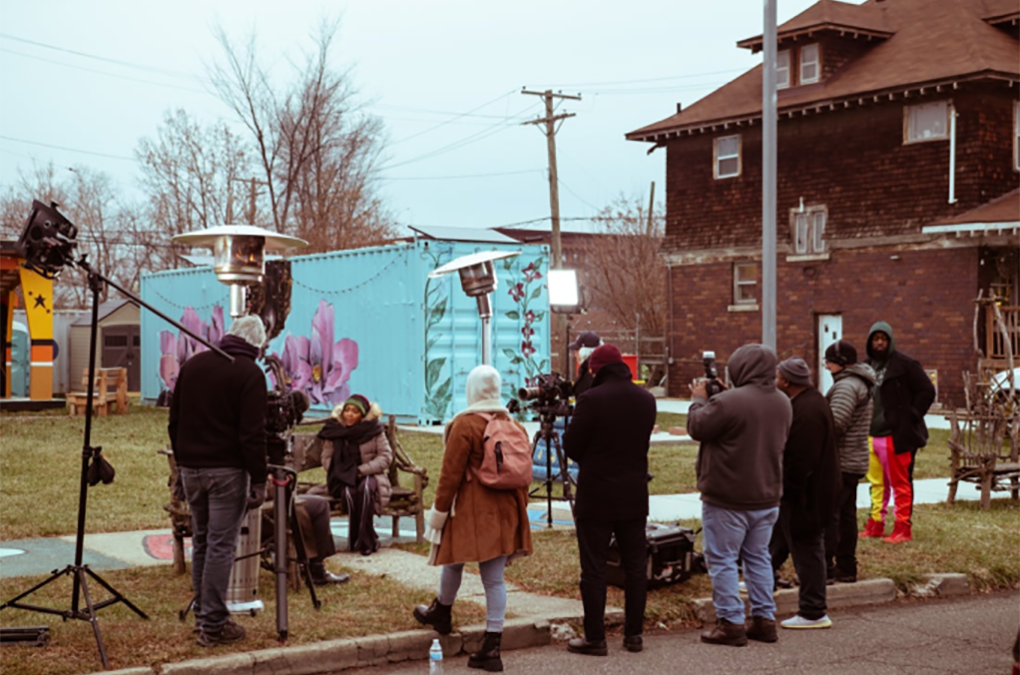 Soulardarity and The Today Show
Soulardarity and The Today Show
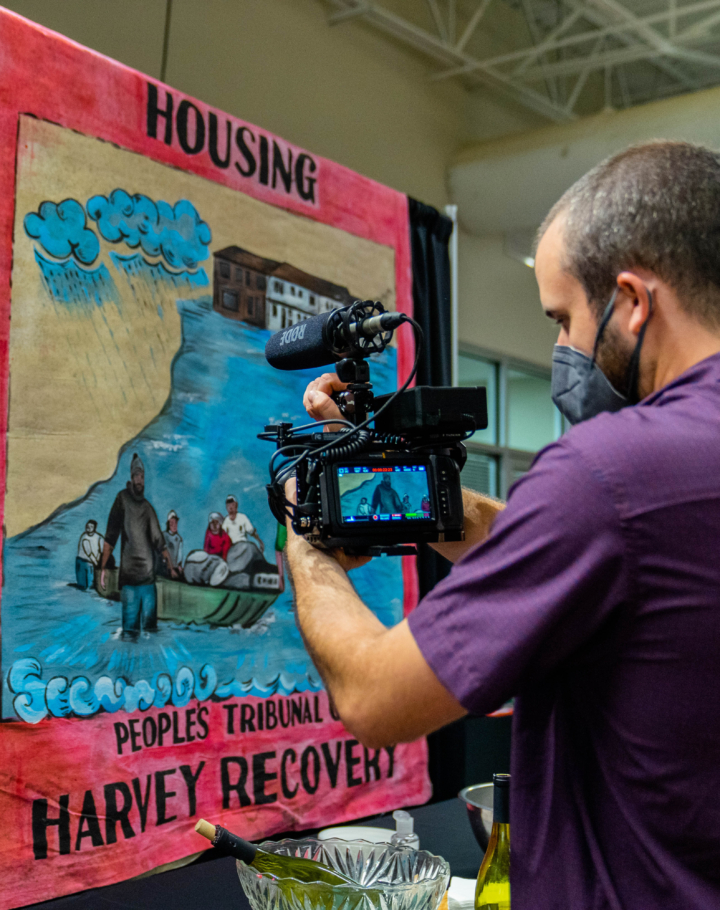 West Street Recovery
West Street Recovery
Stories from frontline communities help us reimagine what’s possible, change public opinion, and accelerate action.
Through grantee communications capacity-building, technical assistance, and amplification partnerships with influencers, organizations, and brands, we disrupt climate “doom and gloom” or victimhood storylines with narratives of hope, joy, and community self-determination.
We strengthen diverse climate movement narratives, including supporting the narrative work of 50 grantee partners.
produced by our press team for The Solutions Project and our grantee partners, resulting in over 13 million potential views
Source: CoverageBooks
50 grantee partners supported with communications capacity secured 20,200 social media mentions and press hits, generating 10.6 billion in potential article views
Source: Meltwater
generated since 2021 by grantee partners as a result of the increased communications capacity from The Solutions Project
Source: Frontline Solutions, 2023
In the past two years, we have assisted over 50 grantees to build communications “toolboxes,” create basic online infrastructure, and develop skills to amplify their climate solutions and stories. The Solutions Project provided grantees with a range of communications support from capacity-building services to mentorship, technology development, custom communications plans, communications training, and more.
Little Manila Rising received holistic communications support from The Solutions Project and our program delivery partners – an expert team of consultants providing dedicated services to our grantees, paid for and managed by The Solutions Project. As a result, Little Manila Rising created a new logo and website, produced a new fundraising campaign video, landed two op-eds in target media outlets, and developed a new digital campaign. We additionally provided two years of ongoing mentorship to their Communications Director. This effort led to a remarkable 258% increase in press and social media mentions in 2023 compared to the organization’s baseline in 2021.
(Photo credit: Little Manila Rising)
During key moments for our grantees – for example, when a local climate campaign approaches a pivotal decision with policymakers or when a “first of its kind” climate solution project is launched – we provide tactical communications assistance to help partners reach a much wider audience.
In 2023, The Solutions Project helped grantee New Alpha Community Development Corporation (CDC) amplify the opening of the first environmental justice training institute in the South in rural Britton’s Neck, South Carolina. New Alpha CDC, which works to improve environmental health and economic development for Southern low- and middle-income families, unveiled the landmark institute to model innovation in disaster resilience, workforce development, and public education. We helped them gain media coverage for this accomplishment, including a segment on Good Morning America, fueling their aspiration to inspire other communities to adopt similar solutions in frontline communities nationwide.
(Photo credit: New Alpha CDC)
Through creative production and strategic partnerships, we help our grantees shape longer-term narratives that shift public understanding of climate justice solutions.
We partnered with The Years Project to produce and distribute compelling and educational short films featuring grantees of The Solutions Project. Seven films featured Hoʻāhu Energy Cooperative Molokai – a community energy cooperative that instituted community solar to combat the highest electricity prices in the country. The Hoʻāhu Energy Cooperative Molokai embodies community self-determination, renewable power, and mutual aid for a better future. The films have reached nearly two million impressions so far.
(Photo credit: Hoʻāhu Energy Cooperative Molokai)
Strengthening Communities and their Climate Innovations

The Solutions Project has elevated an underfunded network of hundreds of organizations into a nationwide grassroots infrastructure for climate justice.
Now that ecosystem is ready to
Our grantee partners’ wins contrast with a volatile landscape for racial and climate justice.
There have been political shifts – from the Supreme Court’s anti-affirmative action decision to backtracking on philanthropic commitments made in 2020 to Black and other communities of color.
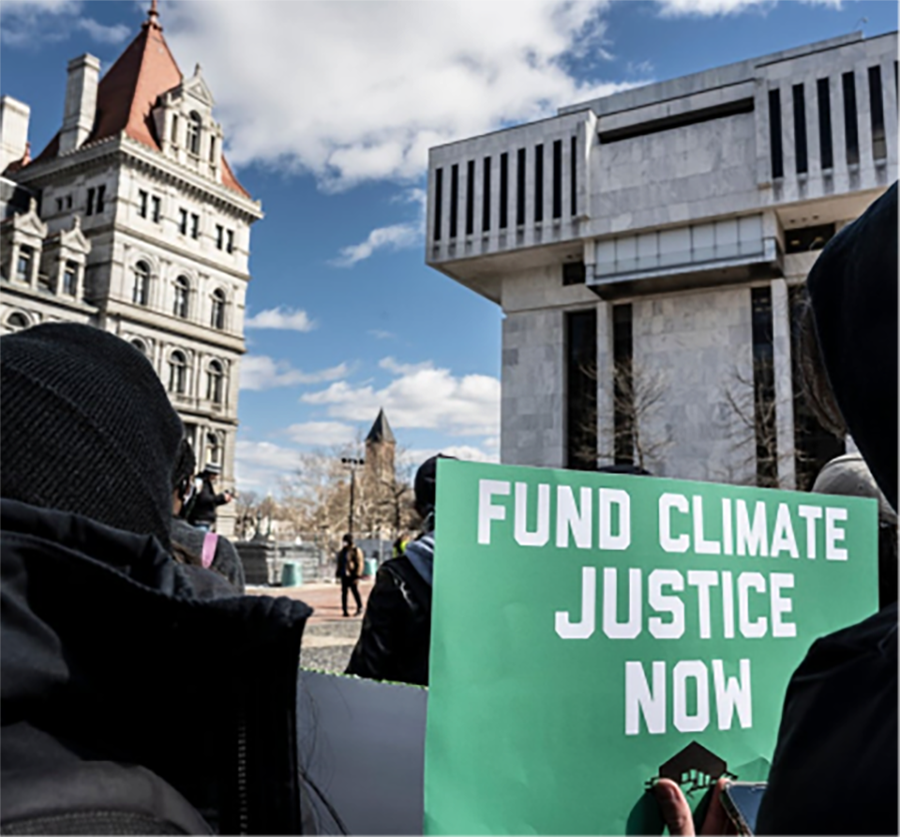
NY Renews
Despite growing proof of the benefits of climate justice solutions, this regression signals a need for more courageous and lasting commitments to justice.
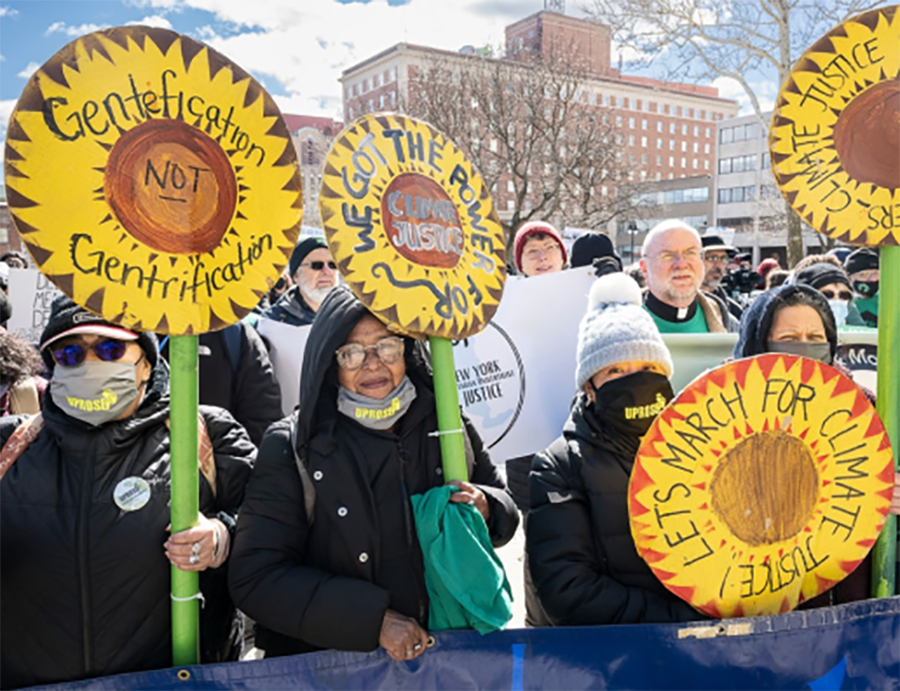
UPROSE
Philanthropy cannot afford to backtrack when so much is at stake, especially for most impacted communities of color.
Abandoning justice is not an option.
It is time to go all in on climate justice.
Join Us in Going ALL IN on Climate Justice